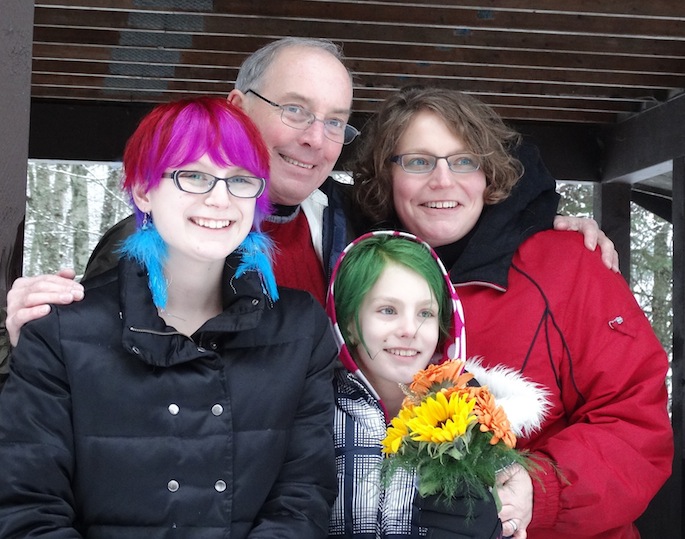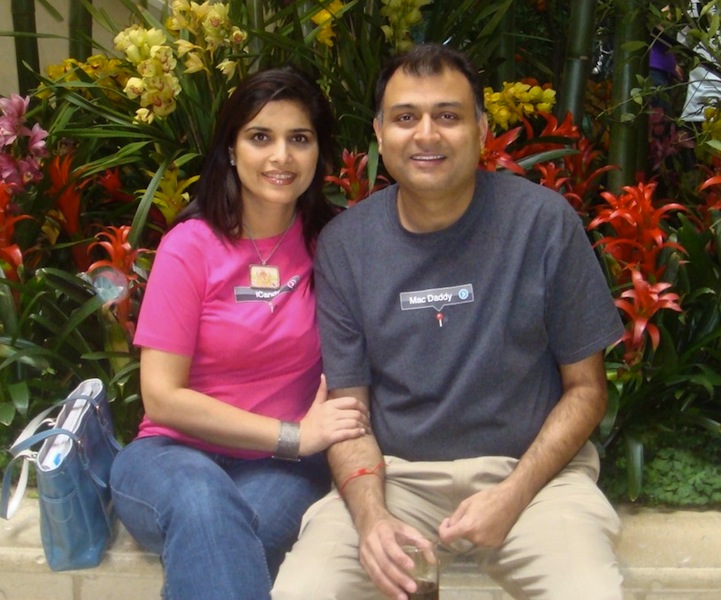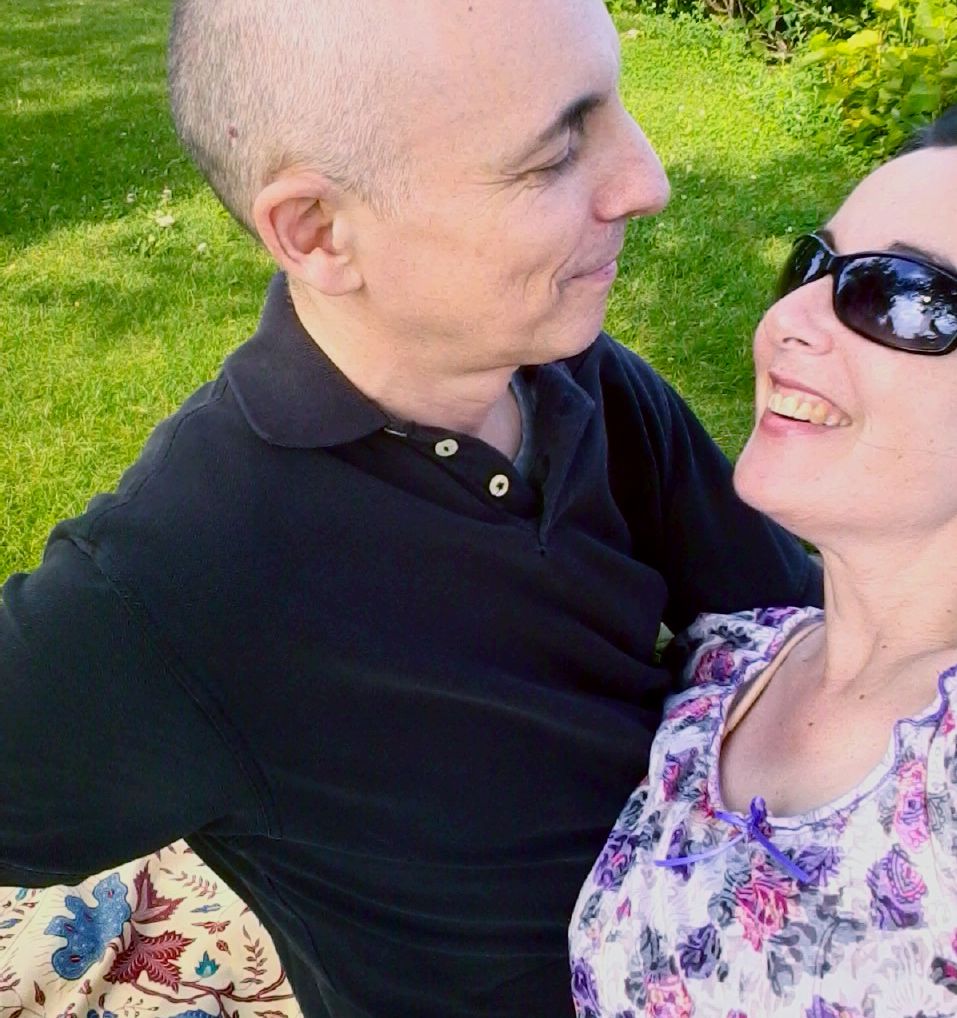Filmmaker Sharon Hyman has a favourite line from one of the subjects of her film Apart♡ners: Living Happily Ever Apart.
“How can I miss you if you won’t go away?” Hyman laughs over the phone.
The Montreal director — whose previous film Neverbloomers examined the idea of adulthood and what it means — is still in development with the documentary, which she hopes will be in production this September and on VOD and in theatrical release in 2015.
Apart♡ners takes a peek at the lives of people who are in committed relationships, including married couples, who choose to live apart.
“I’m not saying this is for everybody,” emphasizes Hyman, who has had an apartner for 15 years — David lives 15 minutes from her apartment in Montreal.
“I know people who are happily married or joined-at-the-hip. But it’s the cookie-cutter trajectory for love. I’m just saying that this isn’t for everyone. We have options.”
Hyman has about a dozen couples of many stripes — straight, bi, gay, families with kids — but is still searching for people of different cultural backgrounds to round out the film. She would like to hear from more couples of varied ethnicities.
She says the trend — according to Statistics Canada, 1 in 13 couples are apartners and in the U.K. and Australia it’s 1 in 10 — cuts across all cultures and sexualities.
“It’s about challenging the norms and figuring out: what is right for me? What is the best way for me to be in a relationship?”
Hyman figures living apart has saved many relationships, as her subjects have attested. The filmmaker spoke to me, expanding on the issues in her documentary.
Apartnerships are a growing trend. Why do think this is so?
There’s a whole group of people who are accounted for as “single” but are in fact in very committed relationships. What box do you tick off if you’re in a 15-year relationship but not married or common-law?

Credit: Kayla Hanington and Daniel Hamlin
I would say society is at a stage where we are re-evaluating relationships. We have more gay marriage and single parents. People are re-thinking: what is family? The whole idea of romantic marriage is very new — it came about at the turn of the century. Before that it was about keeping property and women were seen as part of the property.
The first people who did this were in gay relationships so they were already reinventing how to have a relationship and not fall into stereotypical roles. That’s now spreading to the rest of society.
Previously, men also had a lot of advantages getting married — women did a lot of the household work and the men lived longer (compared to unmarried or divorced men). Women really got the short end of the stick traditionally.
The number 1 thing is the economy of women — for a lot of reasons before now, women had to live with somebody for safety or financial reasons. Women are a lot more autonomous now and there’s no stigma.
You’re in an apartnership, what’s your take on it?
For me it wasn’t just a decision, it was common sense. I grew up in an orthodox Jewish family. My parents have been married 56 years and my grandparents 68 years but I never felt the pressure to live with or marry someone.
David and I have been through everything a couple goes through: deaths, horrible surgeries, etc… We are there for each other but it doesn’t mean we have to do each other’s laundry.
People will say to me: “what a luxury financially.” So, are you saying people should pair up to pay the rent? If I was to move in with someone, we’d need a bigger place and it would cost more. Most of the people in my film, so far, are just working folk.
When people find out I’m an apartner, they start confiding in me. There are many, many couples living apart. They don’t reveal it because it’s somehow seen as some kind of taboo.
Some people also tell me they wish they were an apartner and how much they envy that type of relationship.
Sometimes, they say, “you’re so brave, I need to be around someone all the time.”
I don’t see myself as brave, I have all sorts of insecurities but I guess, one of the hardest things is to be alone.

Credit: Abbi and Hema Vakil
There was a study recently where people were told to be alone with their thoughts for 15 minutes. The only other activity offered was to give themselves an electric shock. The study, published in the journal Science, discovered that on average, men and women would shock themselves seven times during that time period.
People need distractions.
I have a favourite saying from bell hooks: “Knowing how to be solitary is central to the art of loving. When we can be alone, we can be with others without using them as a means of escape.”
What are some of the surprising things you have discovered in your research?
I have found a lot of married couples living apart.
One fellow is onto his third marriage. The first two lasted under five years but he’s now apartners and it has lasted 15 years. His wife feels it’s a perfect situation: you are your own person with your own autonomy — why should you change anything just because you’re with someone? When you move in, you take each other for granted. It becomes about arguments, chores and money.
Many of them have children — a lot from previous relationships but one couple, at least, had children together.
A psychologist I interviewed said: “I wish more couples with kids chose to live apart.” One of the biggest issues she sees is blended families. People think once the adults get together, it’s like the Brady Bunch but it’s far from that. It’s good that kids get to keep their lives and they aren’t uprooted just because their parents changed their romantic status.
I’ve also had people tell me they sleep in separate bedrooms. Surprisingly, they don’t want to say so on camera so I’m still looking for couples who sleep separately in the same house. A Ryerson University study found that 30 to 40 per cent of couples do this. These couples think they’ll be judged for doing this — that their relationship is failing. People who sleep apart say it saved their sex lives!
What do you hope audiences will take away from your film?
It’s important to have your own time and space. Everyone is so complex, flawed and damaged, it’s amazing when two people are together — how can it work?

Credit: David Szanto and Jean Lessard
The ability to be alone is maybe the best ingredient for a long-lasting partnership.
Occasionally, people will say it’s selfish but what’s so selfish about being a whole, healthy person and wanting to be a good partner? You’re in a relationship because you want to be with that person and not to fulfill whatever emotional deficits you have.
If you want to be together with someone, it could be for the wrong reasons: fear of loneliness or societal expectations.
And, if you want to be married or live together, that’s OK too. It’s just that we can’t all follow the same path and I want people to know this is a viable alternative.
There are different ways of living and being.
We are apartners coming out!
June Chua is a Toronto-based journalist who regularly writes about the arts for rabble.ca.



